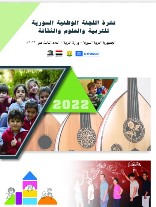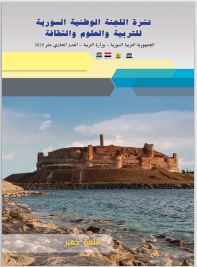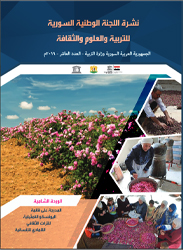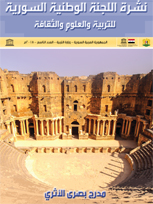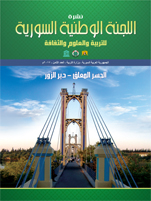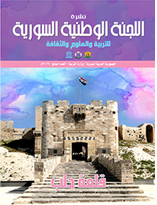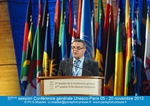The webinar: "The Modern Trends of Adult Learning and Education in The Arab World - the Findings of the Fourth Global Report on Adult Learning and Education (GRALE 4)
|
Within the frame of launching the fourth global report about adult learning and education in the Arab countries, and under the patronage of UNESCO Institute for Lifelong Learning, and UNESCO Regional Bureau for Education in the Arab States, and in cooperation with the Arab Organization for Education, Culture and Science; a virtual symposium was held on "The Modern Trends about Adult Learning and Education in the Arab World - the Results of the Fourth Global Report on Adult Learning and Education (GRALE4)" on Tuesday, September 22nd, 2020. The Syrian Arab Republic represented by:
- The Ministry of Culture - The Directorate of Adult Education and Cultural Development. - The Ministry of Education - The Directorate of Basic Education. - The Secretary of the Syrian National Commission for UNESCO. - In addition to experts of adult learning and education, and officials in the field of education in the Arab world. The symposium aimed to help deepening the understanding of adult learning and education in the region and its progress, as well as to characterize the challenges and obstacles through the main report and the special regional report that analyzes data from Arab countries in particular. During the works, the following points were emphasized: Education is a basic, human, fundamental, empowering right and a lifelong process. Nevertheless, under the serious conditions that the Arab region and the world have undergone where Covide-19 pandemic, adult education programs affect the educational process in particular, we are facing greater challenges and difficulties. The problem of adult learning and their education is not only an educational problem, but it has other dimensions; political, economic and others. However, the most affected categories are the excluded traditional categories: women in remote areas, old people, people with special needs, and youth in war and conflict zones. Therefore, it was necessary to concentrate on flexible programs to save as possible, the literacy principle as a basis for development and on the challenges facing adult education, including gaps of education access, quality, lack of availability, governance, and lack of funding. However, on the statistical level, an increase in the total participation rates in adult learning and education was observed, but the participation of global and regional levels was unequal. Low data is a major obstacle to monitoring inequalities in participation in adult learning and education. For this reason, an increase in investment is required in data collection and monitoring. Among the most important recommendations reached by the symposium: • Maximizing the use of technology and the use of information and communication technology. • Conducting and developing a lot of courses and symposiums online. • States must have accurate and reliable database in promoting adult learning education and achieving inclusiveness and equity. • Promoting the exchange of experiences and good practices concerning adult learning and education in Arab states for mutual benefit. • Implementing the recommendations of the Fourth Global Report about Adult Learning and Education (GRALE 4). • Dedicating several programs to develop the distant-education process. |














